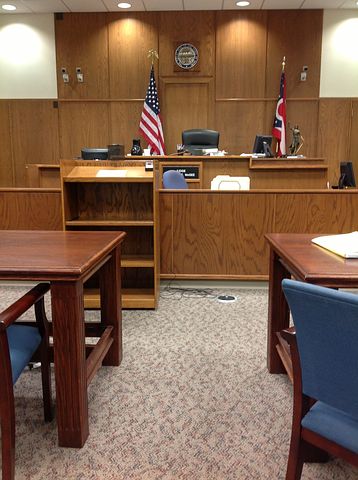What is an Arraignment?
The very first appearance after you are taken into custody is called the arraignment.
At the arraignment, the court provides you or your private attorney with a copy of the complaint. The complaint is a written document, filed by the prosecutor, accusing you of one or more crimes. If you can’t afford a private attorney, the court typically assigns your case to the Public Defender’s Office. It takes time for the paperwork to get from the court to the Public Defender’s Office so be assured you will be contacted by one of our attorneys when our office receives the paperwork to proceed with representation of your case. The arraignment is where the defendant first appears in court, is informed of the charges, and enters a plea. The attorney will discuss the case with you and a plea will be entered. The usual pleas are “not guilty,” “guilty,” or “no contest.” Usually another court date will be set for a Trial Setting Conference to allow your attorney to speak with you about your case and to possibly negotiate a settlement disposition in the case. A District Attorney offer typically includes pleading to one or two charges with the dismissal of additional charges.
Your lawyer will want to talk with you as soon as possible about the case. To help him or her, please write down the following information:
- Any questions you have
- The names of all witnesses
- The nicknames or other names the witnesses are known by, if any
- The addresses of all witnesses
- The telephone numbers of all witnesses
- The names, addresses and telephone numbers of people who can tell the court something favorable about either the facts of the case or about you, the accused.
Discuss your case only with your attorney. Do not talk to family or friends about the case as they may later be forced to testify against you.
If the case does not settle, a trial date will be set by the Court. At the trial, 12 jurors will be selected. The prosecutor will try to prove to the jury that you are guilty of the charged offenses and your attorney will defend you. At the conclusion of the case, the jury will decide whether the prosecutor has proven the charges beyond a reasonable doubt.
All 12 jurors must agree in order to either convict or acquit. If the jury cannot agree, a “mistrial” will be declared by the court and the case may be tried again before a different jury, or it may be dismissed or a case settlement may be agreed by the prosecution and the defense.
If a defendant is found guilty, the judge will then impose a sentence. The possible range of sentence, which is set by various laws, may range from no jail and probation, to imprisonment in the state prison. Sentencing can be a very complex process, depending on the severity of the crime for which the defendant has just been convicted.
